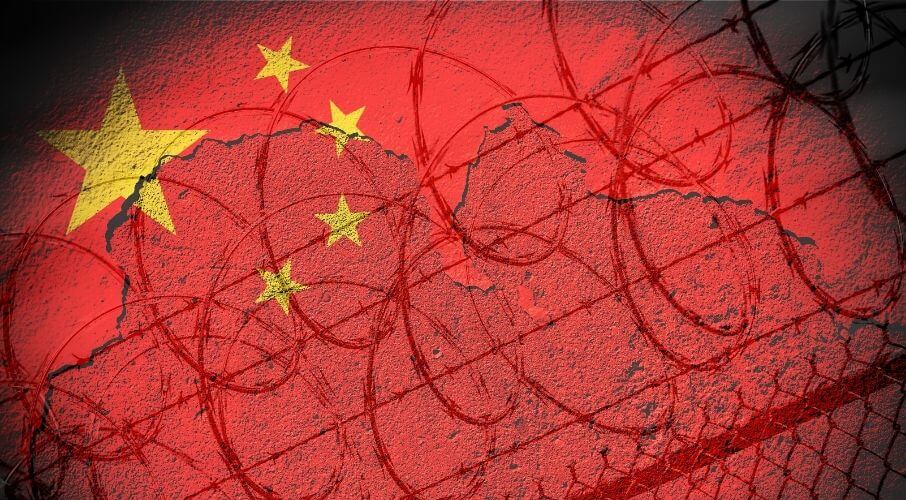 When a government continually subverts the very human rights treaty they signed onto, there must be swift and unified action to hold them to account. Anything less serves as a tacit endorsement of the abuse and an encouragement to the world’s despots that their wrongdoings will face no consequence, writes Dean Baxendale.
When a government continually subverts the very human rights treaty they signed onto, there must be swift and unified action to hold them to account. Anything less serves as a tacit endorsement of the abuse and an encouragement to the world’s despots that their wrongdoings will face no consequence, writes Dean Baxendale.
This article is an accompaniment to MLI’s upcoming webinar on defending human rights in China. To register for this important event, click here.
By Dean Baxendale, January 6, 2020
When the People’s Republic of China replaced the Republic of China at the United Nations in 1971, Beijing reaffirmed its acceptance of the UN Charter and the Universal Declaration of Human Rights (UNDHR).
China subsequently signed onto all manner of conventions, including ones that call for the elimination of racial discrimination, prohibit torture and cruel punishment, enshrine minority rights to cultural and social practices, establish civil and political rights, and more.
However, despite China’s status as a signatory on these conventions and its supposed acceptance of the UN’s human rights doctrine, the Chinese Communist Party (CCP) has established itself as among the worst human rights violators in the world.
Indeed, throughout its more than 70-years of power in China, the CCP regime has consistently ignored its human rights commitments. Ever since coming under Beijing’s boot in the 1950s, Tibet has suffered routine human rights abuses, including cultural genocide, religious persecution of Buddhists, torture and inhumane punishment, arbitrary detention, and the complete erasure of fundamental rights and freedoms.
This same playbook has been applied in relation to religious and ethnic minorities as well as political dissidents throughout China. From ongoing state-sponsored institutionalized discrimination and cultural erasure against Mongolian populations in China, to the notorious mass murder of peaceful student demonstrators in Tiananmen Square in 1989, to what can only be described today as the genocide of the Uyghur Muslim population in Xinjiang, China has both breadth and depth to its deplorable human rights record.
Any territory that China controls falls to the same authoritarian fate, as Hong Kongers have discovered. Once again, China broke with its international commitments in order to suppress political and civil rights in the territory, detain members of the press and politicians, terrorize pro-democracy figures, and ultimately, destroy Hong Kong’s remaining shreds of autonomy.
With all the evidence in front of global leaders, they are obligated to act and address the CCP’s complete betrayal of the UN Charter, UNDHR, and conventions to which China is a signatory. But will they wake up to face this nightmare?
Despite these human rights attrocities, the UN continues to turn a blind eye, even going so far as to elevate China to a role on the UN Human Rights Council. Apart from sparse admonishments from those countries brave enough to speak out against China, there is little that is being done in the UN to stop the CCP’s brazen human rights abuses.
And for its part, notwithstanding lazy and half-hearted expressions of “concern” from Ottawa, Canada has done precious little to defend the basic rights of those living under the CCP’s oppression. So much for the rhetoric of Canada being “back” on the world stage.
As China’s supreme leader, Xi Jinping, has stated, “no one is in the position to dictate to the Chinese people what should and should not be done.” Indeed, it seems as though the UN and much of the world has taken this statement as a direct order.
Much of the world’s hesitancy to criticize the CCP’s human rights record stems from how the regime has managed to engage in institutional and elite capture. A combination of economic pressure and geostrategic maneuvering has allowed China to control or render meek large swaths of the international system. The United Front Work Department’s global enterprise of covert and overt influence operations ensures governments continue to be blinded by the PRC’s real ambitions and preventing backlash against them on all matters, including human rights abuses.
This is all part of a Xi’s grander strategy, one that envisions a world where human and civil rights and the international rule of law are replaced by a dystopian and dictatorial ethno-nationalist ideology guided by the CCP. We cannot allow China to spread its abuses globally by supporting countries with consistent human rights violations, nor can we allow China to dictate a new world order under their rules.
What is needed today is the courage and leadership to dismantle China’s network of influence and coercion that is eroding the international system and diminishing the sovereignty of states like Canada. This starts by introducing laws geared toward stopping foreign interference.
The world’s democracies must also ensure that they, along with the UN itself, reaffirm our solidarity with human rights rules and norms. China must be not only condemned for its long history of abuse, but held to account through sanctions and legal action under established international law.
Most importantly, the world must wake up to the true nature of the CCP regime and think differently about engagement with Beijing. We can ill afford to continue to pretend that business as usual with China is a viable strategy.
When a government continually subverts the very treaty they signed onto, there must be swift and unified action to hold them to account. Anything less serves as a tacit endorsement of the abuse and an encouragement to the world’s despots that their wrongdoings will face no consequence. Enough is enough.
Dean Baxendale is the CEO of Optimum Publishing International, the Chair of the China Democracy Foundation, and the Co-Chair of the “A Way Forward,” Conferences hosted by the Macdonald-Laurier Institute.




